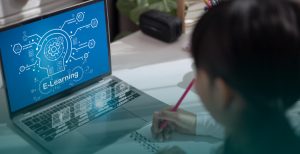
As technology shapes education, teachers’ and students’ interactions with learning have changed significantly in recent years. As digital tools and resources proliferate, the traditional classroom has developed into a dynamic space of interactive learning. These advancements allow students to pick knowledge at their own pace and support more customized and successful teaching strategies. Since it encourages students to thoroughly research subjects and ask questions, therefore promoting critical thinking, the concept of inquiry has become increasingly popular in the classroom. Analyzing how it affects digital learning innovations is essential since technology determines the course of education going ahead.
Transforming Teaching Methods and Student Engagement
Including technology in the classroom has fundamentally changed how teachers present their teachings. Interactive smartboards, digital textbooks, and multimedia presentations are supplanting conventional chalkboards and textbooks. These instruments enable the accommodation of various learning styles and increase the interesting nature of courses. Teachers can create a more cooperative learning environment whereby students may participate in debates, exchange ideas, and collaborate on projects virtually by including digital platforms. This change not only raises student involvement but also clarifies knowledge by offering several approaches to the presentation of material.
Expanding Access to Education Worldwide
The capacity of technology to make learning more easily available is among its most important benefits for education. Geographic restrictions have been broken down by digital platforms and online courses, therefore enabling students from all around the world to access the same first-rate instructional materials. Students in underprivileged or far-off locations who would otherwise have limited access to educational materials especially benefit from this inclusiveness. Moreover, the usage of mobile technologies makes education not limited to the classroom. Students have more chances for ongoing education and development as they can study anywhere and at any moment.
Fostering Independent Learning
Technology has also created conditions whereby students may participate in learning through inquiry. This kind of instruction motivates students to ask questions, look for solutions on their own, and explore subjects of passion. Using digital technologies helps students to investigate materials outside of their textbooks, investigate real-world problems and come up with answers on their own. Conducting web research, simulations, and group projects improves critical thinking abilities and advances lifetime learning.
Technology has had a significant influence on education, transforming student interactions with knowledge and learning style. Growing attention on education and improvements in digital learning tools help students to be more ready to take responsibility for their education. Technology will surely become even more important in determining the course of education as it develops and gives students all around fresh chances.







